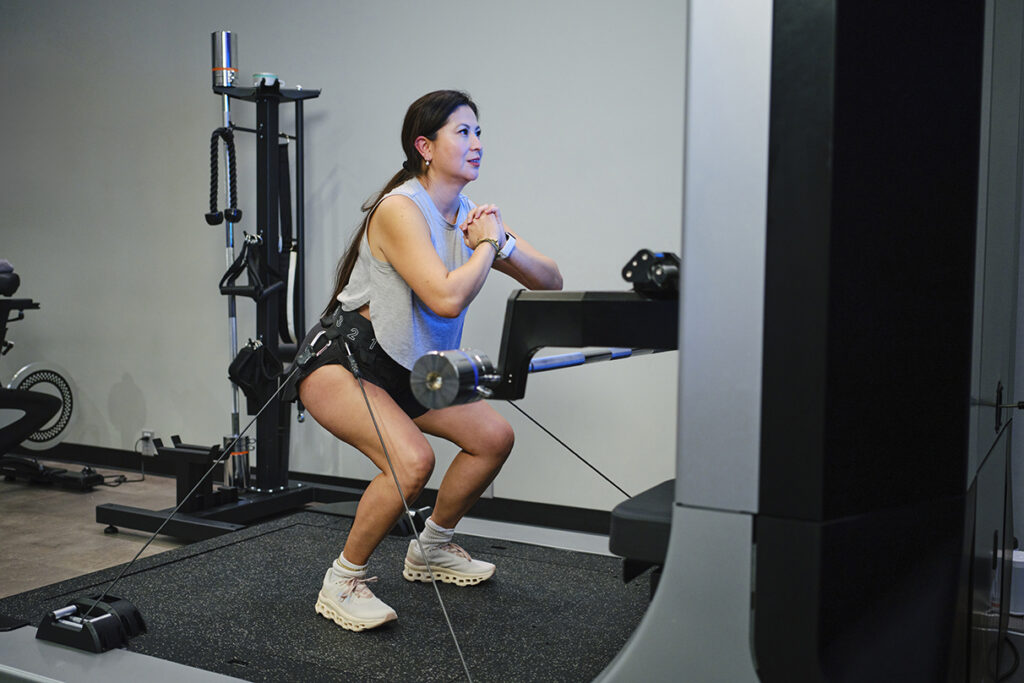Weak logins and shared accounts put your gym at risk. Learn how to build better habits and boost digital security.
Let’s face it, password security isn’t the most exciting of topics. But when your gym business runs on digital tools, it quickly becomes one of the most important.
Almost all gyms and fitness clubs rely on gym management software to keep everything running smoothly. With convenience comes risk. Cybersecurity threats are very real.
Your software partner will have all the right precautions in place to keep your business safe.
Yet, risk still exists if your team fail to follow best practices for managing passwords and accounts. This could open the door to data breaches, unauthorised access, and even expensive downtime.
In this post, we’ll explore:
- Why digital security matters
- Common threats
- And what you can do to strengthen your gym’s defences
Let’s get stuck in!
Power up your business & stay in the know
Why is password and account security so important for gyms?
Small and medium-sized enterprises (SMEs) throughout the UK are reported to lose £3.4bn every year due to cyber incidents. And the average cost of a cyberattack is £3,400 for businesses with under 50 employees.
Beyond financial costs, data breaches and cyberattacks can disrupt business, damage your reputation, and leave you facing legal consequences.
As attackers use smarter tools (including AI) to automate scams and mimic trusted communications, the risk of being impacted by a cyberattack is growing.
Whether you run an independent gym or chain of gyms, your business could be a target. A single compromised account could unlock your entire business. So, treating password and account security as an afterthought is not a risk you want to take.
It’s essential to have strong defences in place, so there are no gaps to be exploited.

Understanding the modern cyberthreat landscape
Cyberthreats are constantly evolving. Let’s start by looking at a few specific types of attacks that gym and fitness club businesses should be aware of:
Phishing
Fraudulent emails, text messages, or even phone calls that trick staff into revealing passwords or clicking dangerous links.
Your gym software partner. A manager. An official organisation like the police. Phishing attempts are sophisticated – they can look, and even sound, like they’re from trusted sources.
Precautions to take:
- Always verify unexpected messages
- Avoid clicking on suspicious links
- Never share login details or passwords
Social engineering
This is when attackers manipulate others into giving up sensitive information. Often, they do this by pretending to be someone trusted.
For example, a caller poses as a software support engineer and asks for login details to fix an issue.
Precautions to take:
- Make it your policy that no one should ever give out passwords verbally or in any other way
- Teach and empower your team to challenge unexpected requests, no matter who the request is coming from
Man-in-the-middle (MitM) attacks
This is when attackers secretly listen in and capture login details or data you’re sending without you knowing.
If you or your staff use unsecured Wi-Fi (e.g. in a coffee shop or on public transport) to log into systems and work, you could be at risk.
Precautions to take:
- Only login from networks you know are secure
- Make sure your gym management software uses HTTPS encryption (you can tell if this is the case by looking at the start of the URL you use to access it)
- Encourage staff to use a VPN if they access your systems offsite
Insider threats
Whether accidental or intentional, current or former team members can cause harm if they have unnecessary or lingering access to systems.
Precautions to take:
- Disable accounts straightaway when someone leaves
- Regularly audit access rights for current staff, set user permissions to restrict access to functionality required only
Email compromise
If a staff member’s email account is hacked, attackers can impersonate them to send malicious links or request data.
Precautions to take:
- Make sure you and your team are using two-factor authentication on all email accounts
- Watch for unusual tone, urgency, or changes in language from known contacts
- Take extra care to keep email passwords unique and different from all other systems
AI-powered attacks
Artificial intelligence (AI) is being exploited by cybercriminals to create highly convincing fake messages, deepfake audio, and even automated spear phishing emails that are targeted to your business.
Precautions to take:
- Be super cautious with any messages that mimic staff tone or refer to info that’s specific to your business
- Encourage your team to report anything that feels ‘off’ or ‘wrong’, even if it appears to be legitimate

Keeping your business secure
Let’s cover some of those precautions in more detail.
Risks of shared accounts
A surprising number of gyms use one shared login for reception/front desk staff or instructor teams.
Unlike Xplor Gym, some systems do charge on a per user basis which can encourage shared logins. And it can feel easier to have a shared login, especially if staff are sharing a PC or laptop.
However, this approach can come at a high cost:
- No accountability – you can’t trace who has made changes or accessed sensitive info
- Larger attack surface – the more people using the same login, the bigger the risk
- Ongoing access – former employees may still know passwords, leaving you open to the risk of unauthorised access and malicious behaviour
- Increased vulnerability to inside threats – disgruntled staff or contractors with shared access can do intentional damage
Use individual logins and assign role-based permissions. So, access can be traced, and team members only get access to the features they need.
Password best practices
Avoidable mistakes when setting passwords can quickly put your business at risk:
- Using weak or common passwords like ‘gym123’, ‘password’, or ‘Liverpool’ (yes, football team passwords are incredibly common and easy to guess – check out this list of common passwords)
- Reusing the same password across different systems
- Writing passwords on sticky notes or storing them in unsecured files
- Falling for phishing messages that ask for login credentials or personal details
- Sharing login details between different staff members
Here’s how to get your team using stronger, more secure passwords:
- Choose long passphrases or complex passwords (at least 12 characters)
- Mix upper and lowercase letters, numbers and special symbols (e.g. ! or %)
- Avoid personal info like birthdays, pet names, or birth places
- Change passwords at least every 3 to 6 months
- Create unique passwords for each system
- Use a password manager to generate and store passwords securely
- Never share details of passwords – even with a trusted partner or colleague
Why two-factor authentication (2FA) is a must
Even if a password is compromised, 2FA is there to protect your business. It requires a second step for login – sending a code to the user by email or text message.
2FA matters as:
- Passwords alone won’t cut it when protecting your business
- 2FA blocks most brute-force and phishing-based attacks
- It reduces the possibility of unauthorised access
Xplor Gym supports 2FA for all staff users. Every fortnight your team members will need to login with their password. Plus, a unique code sent to them by email or text message. This helps stop bad actors, even if a password is stolen.
Just like with passwords, you should train your team to know that they should never share this code. And if they receive a code out of the blue, it’s smart to take action to secure their login by changing the password.
Create a culture of security for your gym business
Security isn’t only about systems. It’s about people and habits. Make account safety part of your culture by:
- Running short training sessions on cybersecurity basics and threats like phishing
- Prioritising personal logins and making 2FA mandatory for all staff
- Reviewing account access when someone joins, changes roles, or leaves
- Nominate a security lead to monitor access and make sure others follow best practices
Prevention is always better than recovery!

Some of the ways Xplor Gym keeps your business secure
At Xplor Gym, we’re serious about helping you protect your business with:
- Individual staff accounts and permissions tailored to each job role
- 2FA for an extra layer of login protection for your staff
- Secure, encrypted infrastructure to protect your data behind the scenes
The wrap up…
Strong passwords and 2FA. Individual accounts, An aware team. These are your best defence against the digital threats all businesses face today.
Start by taking five minutes to check:
- Are all your staff using individual logins for your software?
- Is 2FA turned on?
- Do you have a process to remove access when people leave?
If the answer’s no, now’s the time to fix it.
Need help? Let us show you how Xplor Gym can help secure your business while making day-to-day operations easier than ever.

by Xplor Gym
-
First published: 28 July 2025
Written by: Xplor Gym
